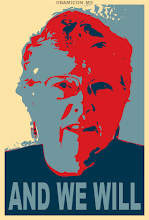Homeless for Over a Century, a Tribe Awaits U.S. Redemption
GREAT FALLS, Mont. - Here at the base of a rise called Hill 57, a steady, cold wind blows on a cloudless day as James Parker Shield and Russ Boham tell of life for the landless Little Shell Tribe of Chippewa Indians.
James Parker Shield helps lead an effort by the Little Shell Tribe of Chippewa Indians to win federal recognition, which would mean money to buy land.
The tribe, its land taken away more than a century ago, squatted in Great Falls and elsewhere in north-central Montana through the late 1960's, living as many as 12 to a tar-paper shack without plumbing, and scavenging at the dump for scrap metal, rags and food. Parents often ran afoul of state child welfare officials. "They'd see you sleeping in a car body and take you away from your family," said Mr. Boham, who, like Mr. Shield, was among those shipped to the state orphanage when he was a child.
Today, with most of its members living in public housing around Great Falls, Mr. Shield and Mr. Boham are leading a protracted fight for government recognition of the tribe. Recognition would allow their people to gain control of federal money to buy land here for a tribal headquarters and housing, and to win back a measure of dignity.
The 112 families led by Chief Little Shell lost their North Dakota homeland to the government in 1892 when a chief of the Pembina Chippewa signed away their rights to it, without their authority and in their absence. The Little Shell had left home, in the Turtle Mountain area, to go hunting, and an Indian agent forced the other Chippewa to accept the Ten Cent Treaty - so called by Indians because it bought about 10 million acres of Chippewa land, including that of the Little Shell, for a million dollars.
Ever since, the Little Shell have known only diaspora.


Links to this post:
Create a Link
<< Home